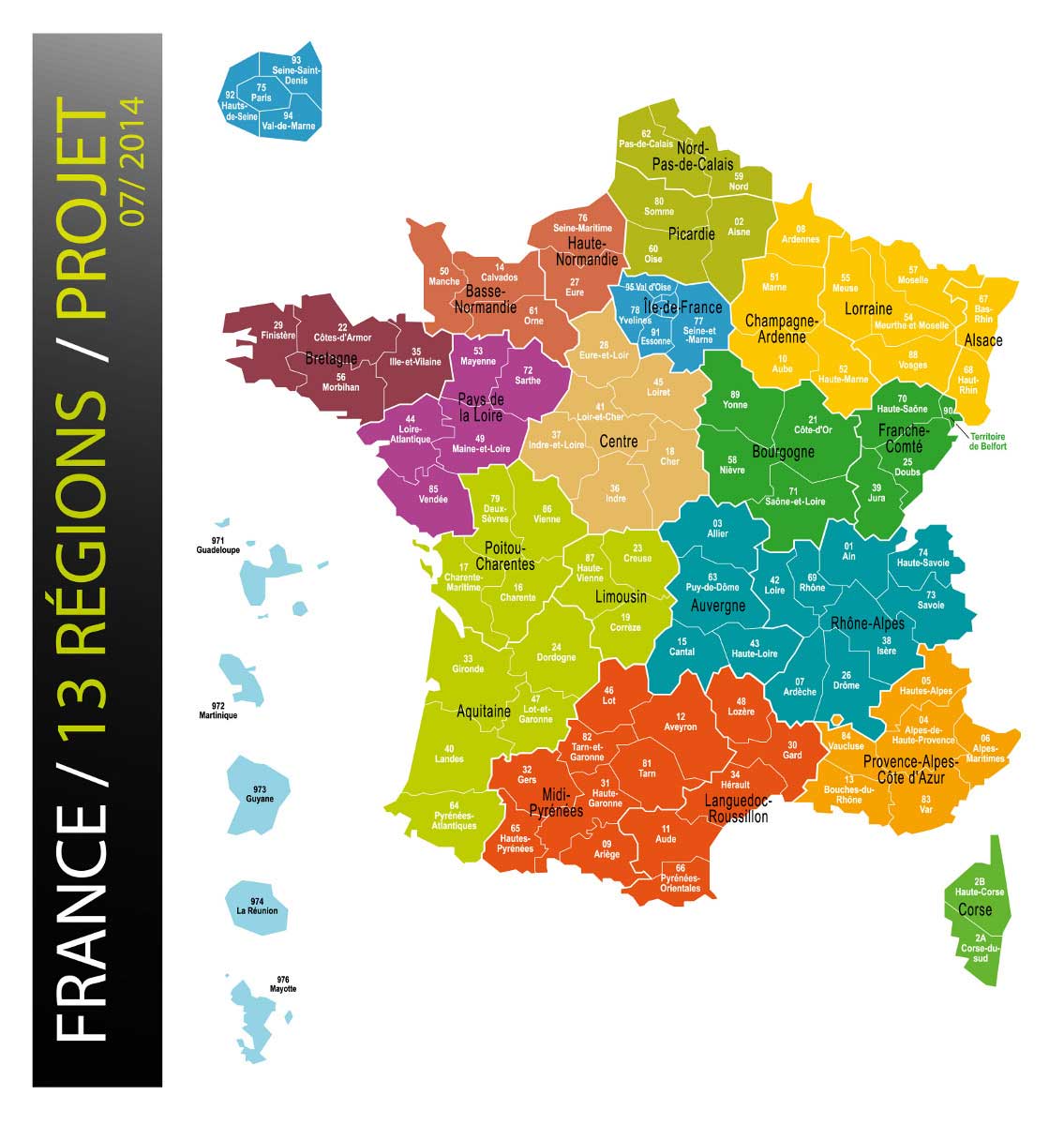
Ouch! Some very topical digs at French President François Hollande here which, like an episode of Shaun Micallef’s Mad As Hell, probably means nothing if you haven’t watched the news in the last couple of weeks. The bigger context involves a bit more history though.
So what’s all this shouting then?

One of M. Hollande’s measures, supposed to save France from stagnation, is to radically reorganise it’s regions, cutting them from 22 to 14 13 (the exact plan has been a little...ah...flexible), thereby saving lots of money...maybe. Hollande quotes a €15 billion saving, but you have to wonder how they factor in the long arguments about which cities will be the new administrative centres, no doubt resulting in some compromise solutions where a totally new city gets the nod.
Another possible problem with this idea is that many quintessentially French products are linked to existing regions which will cease to exist. In strictly practical terms this doesn’t really matter much, but in marketing terms it’s a little odd.
It has also seemed desperately arbitrary at times. First Champagne-Ardenne was linked with Lorraine and Alsace, then only with Picardie and now it’s back with Lorraine and Alsace. Hollande’s former partner, Minister for Ecology, Sustainable Development and Energy Ségolène Royal (and also President of the Poitou-Charentes Regional Council) looked like she was going to get her region merged with Pays de la Loire, but Hollande did a sudden about-turn and instead merged it with Centre and Limousin. Once again, this was changed to merger with Limousin and Aquitaine, leaving Pays de la Loire as one of the unchanged regions.
And this is the source of the demonstration above. When the then Duchy of Brittany was united with the Kingdom of France in 1532 to become the Province of Brittany it was about 20% bigger than it is today since it also included the neighbouring départment of Loire-Atlantique. Some Bretons have been lobbying for its return ever since it was removed in 1956 to form the economic centre of the new region of Pays de la Loire. Part of the rationale for its removal was the rivalry between the cities of Resnn · Roazhon · Rennes (capital of the region of Brittany) and Naunnt · Naoned · Nantes resulting in Nantes getting its very own region. In the messy politics of the post-war 4th Republic (more than one head of government lasted only 1 day in office) I haven’t been able to figure out who was responsible for this plan, but it does bear a compelling resemblence to Marshal Pétain’s Région de Rennes decreed in 1941 during the Vichy regime.
Hence the portrayal of François Hollande as Marshal Pétain, once again denying Brittany its territorial integrity.
Merci pour ce moment
- Telegraph: Valérie Trierweiler 'richer than Hollande' after memoir
- Guardian: Hollande says claim he called poor 'toothless' was blow to his whole life
- Les Inrocks: “Merci pour ce moment”: on a lu le livre de Valérie Trierweiler
- Libé: «Merci pour ce moment» de Trierweiler, le livre qui n'intéresse personne (officiellement)
And the “toothless” bit? Hollande‘s most recent partner, former political journalist Valérie Trierweiler, who departed after (unusually for France) his affair with an actress appeared in the media, has published an extremely successful and damaging account of her experiences as First Lady, Merci pour ce moment (“Thanks for this moment”). In it she claimed that Hollande, despite being a socialist, had no love or respect for the poor, calling them “the toothless” in private and being proud of his wit in doing so. Who’s to say how much of this is true—Le Nouvel Observateur called it a “300-page crime of passion”—but what’s said can’t be unsaid and with Hollande’s popularity at a record low (13%) the public are more than ready to believe it.
So that leaves us with “illiterate”. This comes from a recent couac (“squawk” i.e. “gaff”) from the new Minister of Economy, Industrial Renewal and Information Technology and former Rothschild investment banker, Emmanuel Macron. In trying to argue for the difficulties of female employees of the Breton abbattoir Gad which was going into receivership, he said many of them were illiterate and didn’t have driving licences. He might’ve meant well but it certainly did not go down well.
French Socialism does seem to be having some problems connecting with the people at the moment. Perhaps it’s not surprising then that the National Front is doing so well. They gained two seats in the Senate today—their very first appearance in that house.